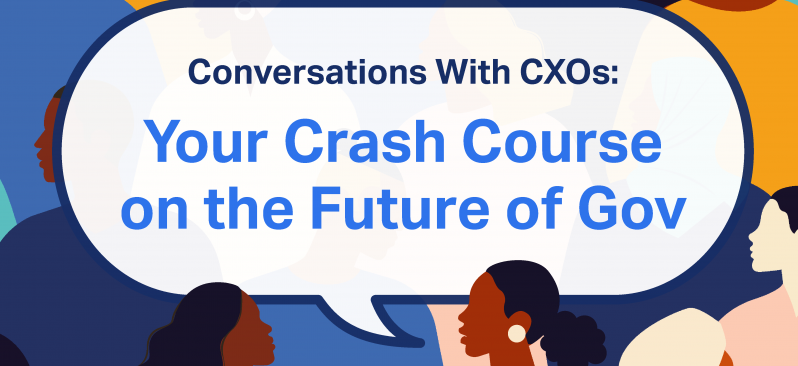As part of our interviews for “Conversations With CXOs: Your Crash Course on the Future of Gov,” we asked C-level execs to share a big learning moment from early in their careers. Here is a sampling of what they said.
It’s Harder Than It Looks
Often, the more you learn, the less you seem to know. It happens with any field of expertise: Once you get past the basics, you begin to discover the nuances, complexities and uncertainties.
That was the experience of Dr. Leandris Liburd, Director, Office of Minority Health and Health Equity at the Centers for Disease Control and Prevention.
Liburd’s experience in her early years of working on issues in population health, which looks at health outcomes at the group level. “Population health and improving population health was much more complicated than everyone ever told me,” she said.
For example, one assumption in health education is that if people know better, they will do better – that is, they will make changes in their behavior that lead to better health. That’s true to a point, but only to a point, because behaviors are shaped by social environments. For example, you can tell people that one simple way to be healthier is to go for walks. But what if they live in a community that does not have many sidewalks?
“Over time, as I started to drill down to really see the complexities of the outcomes we were trying to achieve, there was far more than behavior change that we had to pursue,” Liburd said.
Never Stop Learning
Here’s another adage: The longer you live, the less you seem to know. Anyone who works in IT can vouch for that, although it’s true for other fields as well.
“When I look back over 25 years of security, and the stuff I learned in the first five to 10 years – all that stuff is just obsolete now,” said Jeff Brown, Chief Information Security Officer for Connecticut. “Some of those operating systems aren’t even around anymore. Everything’s changed.”
The pace of change is part of what makes cybersecurity so challenging, he said. Once you complete your education and get your certifications, you might think you’re set. But you’re not.
“The amount of continuous learning that you need to do in cyber I think is a little daunting for some people,” Brown said. “You must be ready at almost any given moment to unlearn things or learn things in a very different manner.”
Brown was fortunate that, early in his career, he also spent time doing distance learning and education, which positioned him well to keep learning as the technology and concepts have evolved.
Smarts Only Go So Far
Some days it helps to be the smartest person in the room, that is, to be the quickest thinker and the most knowledgeable. But often such smarts are not really enough, said Taka Ariga, Chief Data Scientist and Director of Innovation Lab at the Government Accountability Office.
“Persistence and grit outshine intellect every day,” he said. “I have observed a number of occasions where maybe not the most advanced technologist or fantastical mathematician have come on top because they had that drive to succeed and not [settle] for mediocrity as a compromise.”
That might sound odd, especially when it comes to the fields of technology or science. Clearly, deep knowledge is essential, but it’s not necessarily sufficient, Ariga said.
Also, be sure to read what our CXOs wish they had known at the beginning of their careers.





Leave a Reply
You must be logged in to post a comment.